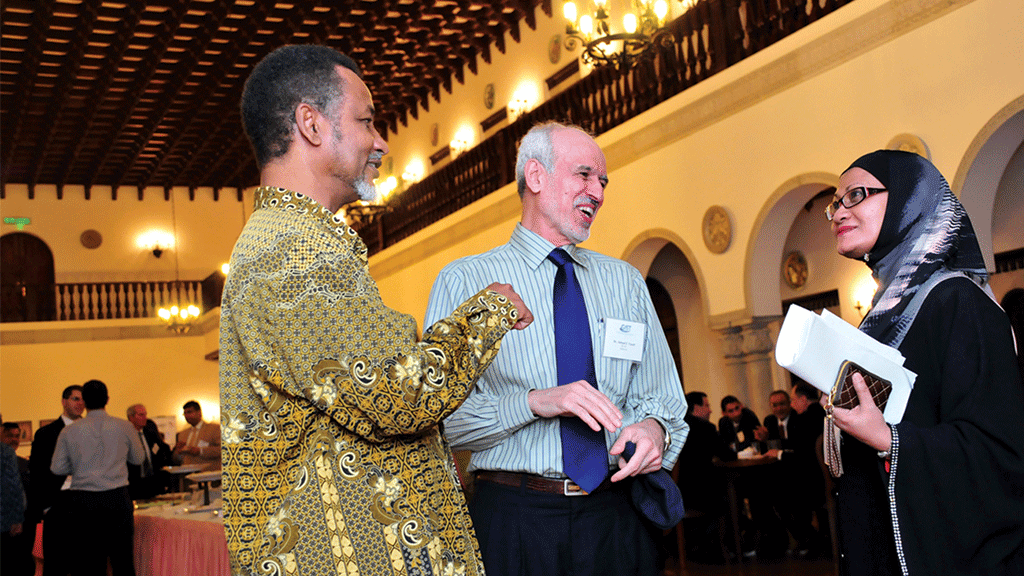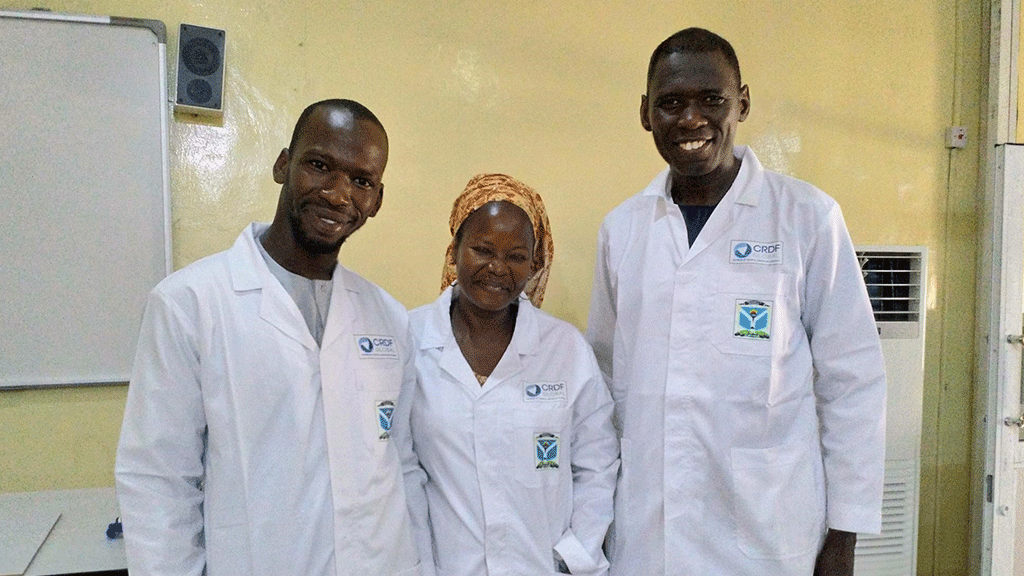CRDF Global, Global Implementation Solutions, Texas A&M University System Announce “Partnership for Global Health Security”
CRDF Global, Global Implementation Solutions (GIS) and Texas A&M University System (TAMUS) have announced the Partnership for Global Health Security to support the Global Health Security Agenda (GHSA). The three institutions have worked closely over the past decade to address the objectives of the GHSA. The GHSA was launched in 2014 to advance a world safe and secure from infectious disease threats and to bring together nations from all over the world to make new, concrete commitments, and to elevate global health security as a national leaders-level priority. The GHSA is supported by over 50 nations, and numerous international organizations, including the U.S. State Department, U.S. Department of Health and Human Services, World Health Organization, World Food and Agriculture Association (FAO) and the World Organization for Animal Health (OIE).
For decades, CRDF Global, GIS and TAMUS have been committed to addressing emerging threats of infectious disease, including Ebola, Avian flu, and most recently, Zika virus. Formalizing the long-term Partnership for Global Health Security brings a strategic and organization focus to support the GHSA.
Preventing, detecting and responding to infectious diseases requires coordination and input of many sectors, including international organizations, governments, academia, law enforcement and others. The partnership reflects the value of a multi-sector approach and combines the expertise and successful experience of three leading members of the global public health community. The partners are committed to working with all stakeholders to support local communities’ infectious disease efforts affecting both human and agricultural populations. The Partnership is committed to the principles of the One Health (OH) concept; the Global Health Security Agenda (GHSA) framework; and the implementation of International Health Regulations (IHR).
“The partnership of TAMUS, CRDF Global and GIS is an example of engaging non-governmental stakeholders, such as universities, non-profits and local implementers. These sectors along with business, international agencies, and governments are essential in the effort to spur greater cooperation and help fill gaps in needed programming,” said Ambassador Bonnie Jenkins, Coordinator for Threat Reduction Programs, U.S. Department of State. “The work of non-governmental stakeholders on global health security is proof positive of the contributions that a ‘whole of society’ approach can make to overcoming the challenges posed by infectious disease threats in our modern and ever-more interconnected world,” said Ambassador Jenkins.
CRDF Global is an independent, nonprofit organization established in 1995 to promote international scientific and technical collaboration through grants, technical resources, training, and services. A leader in global health security for over 20 years, it has provided solutions in 40 countries to secure high consequence pathogens, improve disease surveillance, increase biosafety and biosecurity and support safe and responsible science. Funded by multiple government agencies, private foundations and corporations, and in partnership with institutions, national governments and leading scientists, CRDF Global continues to lead in design and implementation of programs that support global health security. CRDF Global’s GHS solutions support East and Sub-Saharan Africa, the Middle East, Southeast and Central Asia and their stakeholders through technical assistance, research collaborations and capacity building programs. Promotion and support of safe and responsible science is the core of CRDF Global’s commitment to all stakeholders.
Global Implementation Solutions is dedicated to providing sustainable support for One Health programs, biosecurity legislation development, and building laboratory diagnostic capacity in Africa and the Middle East through funding from US government agencies such as the Centers for Disease Control and Prevention, Department of State, and the Department of Threat Reduction Agency. With the support of a cadre of local and regional technical consultants, GIS has effectively provided international partners project management and implementation solutions to support programs focused on improvement of local healthcare systems in resource limited countries for 10 years. With funding from the CDC, GIS’ Kisumu office is working closely with regional consultants to build local health laboratory capacity in 7 counties within the Western Region of Kenya (Kisumu, Kakamega, Busia, Homa Bay, Bungoma, Siaya, Migori, and Vihiga).
Texas A&M University System is a statewide network of 11 universities, 7 state agencies and a comprehensive health science center leading the U.S. for human and animal health. Within the University, there are colleges in public health, medical sciences, veterinary medicine, agriculture, engineering and life sciences. As result of TAMUS’ global health enterprise with USAID, host governments, and the private sector, TAMUS has resident expertise and programs related to disease tracking, emergency operations center implementation, laboratory strengthening, food security and the entire range of emerging infectious disease training to include vaccine development and medical and veterinary countermeasures for global public health at the human animal nexus. The three entities spearheading the TAMUS global health enterprise (i.e. Texas A&M’s Health Science Center in human public health, the College of Veterinary Medicine and the Institute for Infectious Animal Diseases (IIAD) in veterinary public health) cover a wide spectrum of health related facets ranging from research and product development to education and outreach for the prevention, detection and recovery from transboundary, emerging and/or zoonotic diseases. With its multi-faceted approach TAMUS is able to leverage resources of multiple global partners including private sector industries, state and federal agencies and international organizations such as the Organization for Animal Health (OIE).
Collectively, the Partnership for Global Health Security is strongly positioned to develop sustainable programs that build on each partner’s individual successes in the global health arena towards developing local and regional capacity to prevent, detect and respond to disease outbreaks.



